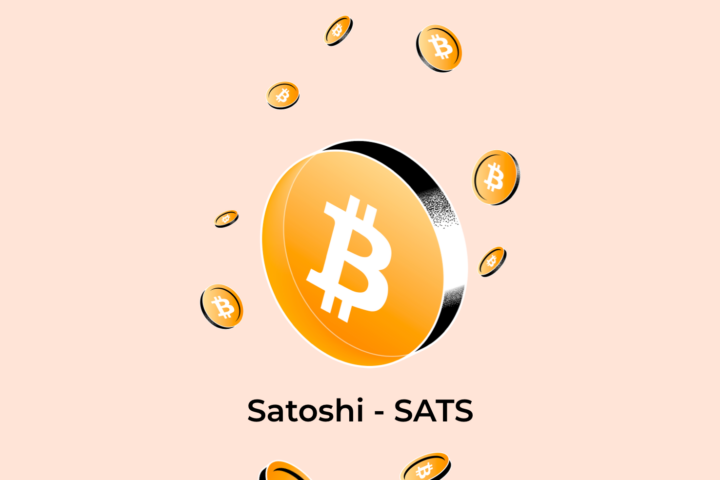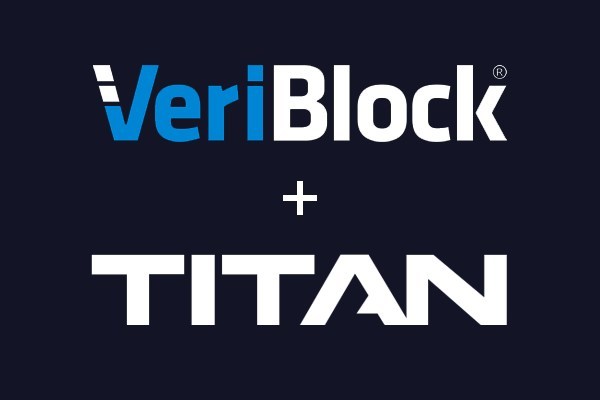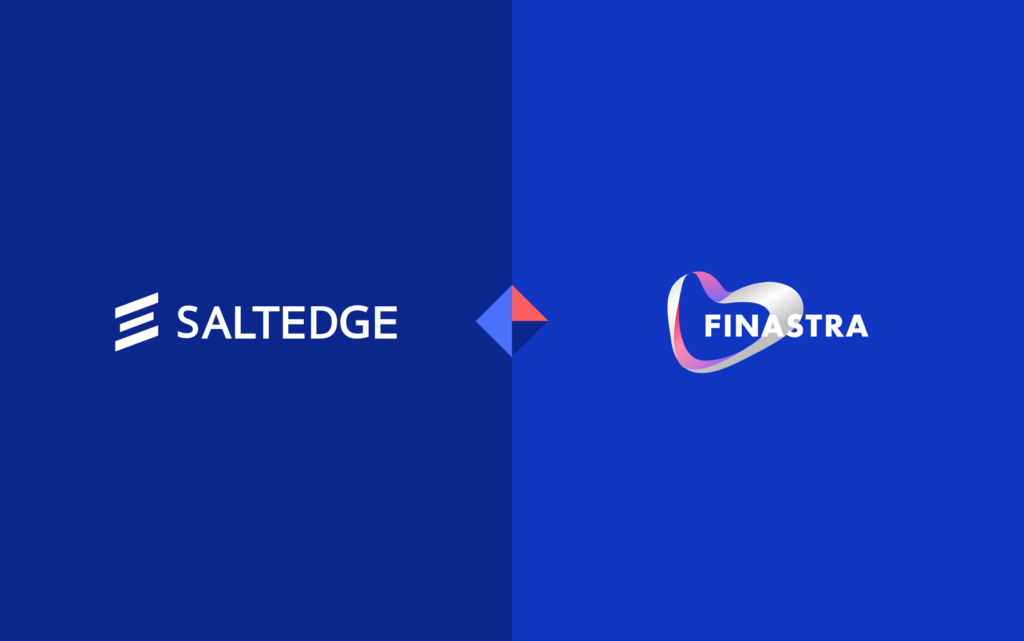Switching to the Satoshi standard and Lightning Network connectivity makes Bitcoin more tangible and easy to use. AAX has made the first move in the crypto space, already providing BTC to SAT
Binance Appoints ADGM’s Richard Teng as CEO
LiveSingaporean crypto exchange platform Binance appointed Richard Teng, the former CEO of Financial Services Regulatory Authority at Abu Dhabi Global Market (ADGM) as its Chief Executive Officer.
Teng played a pivotal role in enabling ADGM to gain international recognition by global regulators and industry bodies, with a Forbes article labelling him as “one of the world’s foremost innovative regulators”.
Under his leadership, ADGM grew from being a newly established financial center to having nearly 2,700 registered licenses in issue and more than 150 approved financial institutions in less than five years.
Prior to joining ADGM, Teng was the Chief Regulatory Officer of the Singapore Exchange (SGX). He led the regulation group responsible for policy, framework and rule formulation in the areas of listing, trading and clearing as well as regulatory solutioning for new products and services.
Before joining SGX, Teng spent 13 years with the Monetary Authority of Singapore (MAS), where he rose to become the Director of Corporate Finance.
Teng’s appointment comes as the beleaguered crypto platform faces brickbats from regulators across the world over regulatory and licensing concerns.
Binance has since made moves to right the ship by appointing Greg Monahan, former US Treasury Criminal Investigator, as its Global Money Laundering Reporting Officer.
UK neobank Kroo receives banking licence
Fresh from a £17.7 million funding round, UK social banking startup Kroo has received a restricted banking licence from the Prudential Regulation Authority and the Financial Conduct Authority.
The authorisation with restriction means that Kroo can accept deposits up to £50,000 in total. This ‘mobilisation’ phase allows new banks a time to finalise their systems, infrastructure and controls ahead of public launch, which for Kroo is expected in early 2022, once the full banking licence is granted.
Kroo’s current product range – a prepaid debit card and app – enables customers to easily create groups with friends, track spending, and split and pay bills quickly and securely.
Once the restrictions are lifted in early 2022, Kroo intends to gradually close down the prepaid card scheme and offer its 5000 users the ability to transition their existing accounts over to the new Kroo current account.
As part of its product expansion, the bank – which has raised a total of £30m in venture capital funding since launch – will offer loans later in 2022 and grow its workforce across technology, marketing, risk, compliance and customer support.
Andrea De Gottardo, CEO of Kroo, says “It is incredibly exciting to finally be a bank that is authorised with restrictions. Very few firms in the UK get to this point and this represents a huge milestone for the entire team.”
Nymbus teams up with digital wealth tech firm Marstone
Marstone, Inc., a leading digital wealth technology firm, announced it is partnering with banking technology solutions provider Nymbus.
The collaboration brings together Marstone’s relentless focus of promoting financial health and literacy with Nymbus’ mission of accelerating growth for banks and credit unions through new routes to market.
“As we move forward in a post-pandemic environment, banking has shifted significantly with an arising need for greater financial planning tools as a core component to end-clients’ life and stability,” said Allison Netzer, Chief Marketing & Strategy Officer at Nymbus. “At Nymbus, we know that there are best-in-breed solutions already in the market to help our clients achieve their goals quickly and easily. Marstone’s digital wealth management platform will play a critical role as we continue to remove the hurdles historically associated with digital banking innovation.”
In addition to a complete suite of banking technology applications offered for core, onboarding, lending and CRM services, Nymbus formed a Labs unit to amplify the capabilities of traditional institutions and extend their reach to new niche customer segments. It brings together Nymbus’ world-class development, marketing, and user-experience teams—and key partners such as Marstone—integrating everything needed to build out and operate a full-scale digital bank positioned for success on day one.
Marstone offers a comprehensive, industry-leading digital wealth management platform and financial health and wellness toolkit that can be implemented in a fraction of the time it would take to build in-house, helping organizations create a seamless digital experience that creates backend efficiencies and cost-savings, all while meeting evolving end-user demands.
“COVID accelerated the already growing number of consumers shifting their wealth and banking to digital offerings,” said Margaret J. Hartigan, Co-Founder and CEO, Marstone. “To remain successful, financial institutions need to recognize that digital financial management and education are essential. We’re thrilled to be partnering with Nymbus as they incorporate our turnkey digital wealth management platform into their rapidly growing solution set for niche banking players.”
Today’s partnership comes on the heels of Marstone’s recent $5 million Series A financing announcement as well as the company’s partnership with Amerant Bank to accelerate customer-centric digital wealth management solutions.
Eurex launches Bitcoin ETF futures
With the new contract, Deutsche Börse Group’s derivatives arm offers clients access to the price of Bitcoin in a regulated on-exchange and centrally cleared environment. This offering will be the first regulated market in Bitcoin-related derivatives in Europe.
Launch of the new contract is planned for 13 September. The futures contract is based on the BTCetc Bitcoin Exchange Traded Crypto (ISIN: DE000A27Z304), which is listed on the Frankfurt Stock Exchange and has been among the most heavily traded ETF/ETN contracts on Xetra since its start in June 2020. The Bitcoin ETN was equivalent to 1/1000th of a Bitcoin at launch and is fully backed by and redeemable in Bitcoin. The new futures contract will be traded in euro and physically delivered in Bitcoin ETNs.
This set-up allows investors to track the price development of Bitcoins in a fully regulated on-exchange environment and based on a transparent price discovery of the underlying ETN. Both the underlying ETN, as well as the futures, trade, clear and settle on Deutsche Börse Group’s proven infrastructure. Bitcoin ETN futures are centrally cleared like any other derivatives traded on Eurex. Eurex’s standard clearing, netting, and risk management processes thereby come into effect, mitigating counterparty risk and reducing operational costs for market participants.
Randolf Roth, Member of the Eurex Executive Board said: “There is significant demand from instutional investors to gain Bitcoin exposure in a secure and regulated environment. We are pleased to be the first regulated exchange to offer this innovative contract. The new Bitcoin ETN futures enable investors to trade and hedge Bitcoin within Eurex’s proven trading and clearing infrastructure without the need to turn to unregulated crypto venues or set up a separate infrastructure, such as a crypto wallet. It is the logical extension of the ETN that already trades very successfully on Xetra.”
Meanwhile, Deutsche Börse has expanded its innovative offering of the world’s first centrally cleared Bitcoin ETN on Xetra with further ETNs on Ethereum, Bitcoin Cash and Litecoin. With an average monthly order book turnover of 1.0 billion EUR in H1/2021, Xetra has established itself as Europe’s leading exchange for crypto ETNs.
Binance Expands Global KYC Requirements to Further User Protection
LiveBinance, the world’s leading blockchain ecosystem and cryptocurrency infrastructure provider, has today announced the global rollout of its Intermediate Verification requirement for all users.
Intermediate Verification supports Binance’s Know Your Customer (KYC) and Anti-Money Laundering (AML) efforts as part of the organization’s redoubling of efforts to further enhance user protection and risk management protocols.
Changpeng Zhao (CZ), Founder and CEO of Binance, said: “User protection is an integral part of our DNA and core values. Our vision is to create a sustainable ecosystem that is safe for all participants. In the last four years we have laid the groundwork by investing heavily in security and user protection, supporting law enforcement from around the world with high-profile investigations and helping cybercrime victims recover millions of dollars worth of stolen funds.”
“We aim to work more collaboratively with policy-makers to improve global standards and discourage bad actors.”
In the last 30 days, Binance has announced significant investments towards user protection, including (but not limited to) senior compliance appointments, compliance technology deployments, Tax Reporting Tool launch, updates to leveraged trading, changes to withdrawal limits and updates to API services.
For more information on the updates to Binance’s global KYC requirements, please visit here.
VeriBlock Foundation Partners With Titan.io to Improve Blockchain Ecosystem Security While Making Bitcoin More Green
The VeriBlock Foundation, a Cayman Islands nonprofit dedicated to promoting the development and adoption of VeriBlock®‘s Proof-of-Proof® (PoP®) security technology, has partnered with Titan.io, investing in their powerful software and services designed to optimize and decentralize PoW mining at scale.
As part of the partnership agreement, Titan has endorsed VeriBlock’s Proof-of-Proof protocol, guaranteeing that they will include at least one PoP transaction whenever their pool mines a Bitcoin block. This significantly increases the security VeriBlock provides to blockchains that rely on it for Decentralized, Trustless, Transparent, and Permissionless (“DTTP®“) security backed by Bitcoin.
“We’re excited to partner with Titan.io to further increase the security and robustness of the VeriBlock ecosystem and look forward to the altchain PoP mining optimizations this partnership can provide,” commented Justin Fisher, CEO and Co-Founder of VeriBlock. “It’s wonderful to work with partners like Titan who understand the benefits PoP adoption provides to the Bitcoin mining industry.”
The guarantee of mining pools like Titan.io to always include PoP transactions further solidifies VeriBlock as a leader in the blockchain security ecosystem.
“The Titan team has worked hard to develop North America’s first enterprise-grade Bitcoin mining pool,” said Ryan Condron, CEO and Co-Founder of Titan.io. “We’re excited to enhance our Bitcoin mining services with PoP, not only to make Bitcoin greener but also to increase Bitcoin miner revenue in a mutually beneficial way. We also look forward to exploring future use cases with the VeriBlock community as we develop our upcoming protocol, a decentralized peer-to-peer platform for building trustless hashpower tokens, DEXs, and other hashpower DeFi products.”
The Titan Mining Pool offers a powerful North American alternative and pathway for Bitcoin/PoW miners to achieve the efficiency and scale miners enjoy in other regions around the globe while introducing a new protocol for provable hashpower. The result is a new platform that gives miners better access to larger markets for their crypto compute power, allows others to invest and buy/sell this new commodity at reduced risk, and provides additional opportunities for the entire mining industry through financial derivatives/futures as well as services for lending, custody, OTC, and trading.
“Early on, we recognized the benefits VeriBlock provides both to Bitcoin miners and the world’s altchain ecosystem,” explained Matthew Roszak, Strategic Investor and Advisor in VeriBlock and Co-Founder of Titan.io. “We’re all excited to see Titan lead the charge in Bitcoin mining pools officially endorsing this technology, helping to harden the cement of the entire ecosystem while providing additional value to Titan miners.”
Finastra and Salt Edge collaborate to provide a more personalised banking experience
Finastra announced its collaboration with Salt Edge to improve the speed of compliance with PSD2 and other global open banking standards, for banks and Electronic Money Institutions (EMIs) worldwide. The integration of the Salt Edge SaaS solution, Open Banking Compliance, with Finastra’s core banking solutions, Fusion Essence and Fusion Equation, enables institutions to build the necessary architecture to support end-to-end banking requirements and compliance through one API.
In an increasingly competitive global marketplace, banks and EMIs are under pressure to optimise their core processes and profitability, reduce the time to market for new products, and continue to innovate and personalise their offering. The opening up of data has provided a good foundation for achieving this. In fact, Finastra’s State of the Nation research found that, globally, 94% of professionals at financial institutions agree that open banking is important to their organisation, with 63% reporting that it’s enabled them to improve customer experience and 59% stating that it’s helped attract new types of customers. However, complying with PSD2 and regional open banking standards can be a time-consuming, expensive and complicated task.
Salt Edge has a proven track record of success with more than 100+ API implementations for financial institutions globally. Bringing Open Banking Compliance into our suite of core banking solutions makes compliance quick and seamless for both Finastra and Salt Edge customers, while giving them the tools to create better and more personalised products and services. For the end user, the benefit is a much quicker, secure and relevant banking experience that truly accommodates their needs. We are excited to partner with Salt Edge and welcome them into our ecosystem.
Anand Subbaraman, General Manager, Banking at Finastra
Salt Edge Open Banking Compliance provides full coverage of regulated markets with cross-bank and pan-European API standards, such as Open Banking UK and The Berlin Group in the EU, as well as newly regulated markets such as Australia, Brazil and the GCC. The comprehensive set of APIs gives third-party providers (TPPs) instant and secure access to account information, payment initiation and a full-stack developer portal. Additionally, the solution provides added security, with a TPP verification system and mobile-first application to comply with strong customer authentication (SCA) and dynamic linking requirements. The integration is carried out via Finastra’s open development platform, FusionFabric.cloud.
Finastra’s commitment to unlocking the power of finance for everyone supports our goal to simplify all components of open banking and PSD2 compliance for both financial providers and end customers. The partnership extends our network coverage from our existing customers to Finastra’s wide customer base, while the pre-integration of our combined best-in-class solutions allows end-customers to benefit from more inclusive financial services thanks to open banking.
Dmitrii Barbasura, co-founder & CEO at Salt Edge
Coinbase announced launch in Japan
LiveThe largest U.S. cryptocurrency exchange has teamed up with Mitsubishi UFJ Financial Group Inc. to start a cryptocurrency exchange in Japan, allowing account holders at the nation’s biggest bank to buy and sell virtual currencies.
Coinbase Global Inc. secured regulatory approval earlier this year in Japan, where 31 companies are registered to trade the assets, and faces local competition from companies such as Coincheck Inc., owned by Monex Group Inc., and GMO Coin Inc.
“We aim to reach out to a wide range of customers by offering low-hurdle services,” Nao Kitazawa, head of Coinbase Japan, said in a briefing Thursday. The company has begun by allowing trading in five digital coins: Bitcoin, Ethereum, Litecoin, Bitcoin Cash and Stellar.
Coinbase said MUFG Bank was a payment partner in Japan and that the bank’s account holders could easily buy cryptocurrencies on the exchange. MUFG is an investor in Coinbase Global. Account holders at other banks can’t do transactions with Coinbase, Kitazawa said.
In an interview, Kitazawa, a former Morgan Stanley banker, said Coinbase Japan had staff of about 30 people currently and was looking to hire more for product development.
While Coinbase has started by targeting retail customers in Japan, Kitazawa said he is optimistic about the prospect for institutional business, given the global trend of a growing number of asset management companies, pensions and endowments allocating money to cryptocurrencies.
An increasing number of institutional investors want to talk with us, he said. “Their questions have been getting more specific recently,” adding that the company may hire staff to cater to institutional investors in Japan if it sees demand.
Japanese technology giant Glory backs shared banking hubs startup OneBanks
With banks progressively moving away from the High Street, the idea of creating shared banking hubs to maintain localised access to financial services has been gaining momentum.
The investment in OneBanks comes as UK banks extend ongoing trials of shared banking hubs in South Lanarkshire and Essex in the face of impending legislation which will give the Financial Conduct Authority the power to run the rule over future branch closures.
OneBanks is promising to provide bank-agnostic in-branch services – such as cash withdrawals, deposits, payments, and face-to-face support – for people and SMEs in communities abansoned by traditional bricks and mortar bank outlets.
The startup’s quick to assemble pop-up kiosks use Open Banking technology from a number of tech partners, including Endava, Trust Stamp, Nuapay, NCR and Accenture Business, to provide immediate access to financial accounts from multiple banks. As a shared facility, the cost is split between individual financial institutions.
OneBanks in December launched its first pilot kiosk in the town of Denny, Scotland, which has had no local bank branch for two years. The fully staffed kiosk, which has created seven new roles for local people, will be open from 7am until 10pm Monday to Friday and 9am to 6pm on weekends.
Withe investment from Glory in the bag, OneBanks intends to begin full UK nationwide roll-out, expanding to 15 locations by the end of 2022 and 150 by 2025.
OneBanks has previously secured capital from ‘angel’ backers including Rupert Pennant-Rea, former deputy governor of the Bank of England, and Baroness Bottomley, the former Conservative cabinet minister.
On completion of the transaction, Glory will become the lead external investor with a significant minority of the enlarged capital and Javed Anjum, Glory’s head of Software Strategy & Innovation will join the OneBanks Board of Directors.
Also on completion, Jonathan Hughes will assume the role of executive chairman of OneBanks. Hughes was previously ]part of the team that turned around Worldpay whilst it was under private equity ownership, led the creation of Tyl by NatWest, co-founded Pollinate International, and was a Partner at Bain & Company.
Duncan Cockburn, founder and CEO of OneBanks, says: “We see a huge opportunity for us as an independent player enabling an efficient service model which will allow banks to offer better basic banking facilities in communities where they are needed. To have a leading global provider of banking technology solutions for the financial industry buying in so enthusiastically into our vision is immensely valuable – particularly at this stage in our development.”
PNGME Raises $15M in Series A Funding to Power the Future of Financial Services in Africa
Unbundling financial data through APIs and driving data-driven insights with value-add products in Africa keeps getting more exciting as major players continue to raise more money for scale.
Less than a year after its $3 million seed round, San Francisco- and Africa-based fintech Pngme has snapped up another $15 million for its financial data infrastructure play. The company is also describing itself as a machine learning-as-a-service platform.
Octopus Ventures led the Series A round, with follow-on investment from Lateral Capital, EchoVC, Raptor Group and Two Small Fish Ventures. Other investors like Unshackled Ventures, Future Africa, Lagos-based Aruwa Capital, and The51 participated too. Pngme also received checks from angel investors; some include Hayden Simmons of RallyCap, Plaid’s Dan Kahn, Richard Talbot, ex-COO of RBC Capital Markets and Kyle Ellicott of Intersect VC.
Pngme’s platform caters to fintechs and other financial institutions across sub-Saharan Africa. When the founders, Brendan Playford and Cate Rung, last spoke with TechCrunch, Pngme was heading out of stealth mode in Nigeria, Kenya and Ghana.
Right now, Pngme has three core products for clients in these three markets. In addition to its already known API and mobile SDK, Pngme has added a customer management platform. The company says combining the three products will drive its customers’ adoption and use of personalized user experiences and financial products.
In a conversation with TechCrunch, Playford references building personalized user fintech experiences to what Alipay and WeChat have done in the past couple of years.
When users sign up, both platforms provide the right recommendations on every financial service before offering the right product when they make up their minds.
“It’s a highly data-driven user experience. And every fintech or bank wants to provide that same data-driven user experience. From instant loans or savings, or overdrafts, or whatever it might be, it’s all just like a user experience around a product,” Playford said, referring to both Chinese super-app juggernauts. “If you get to the core of all of the business problems for financial institutions, they’re looking at doing two things. One is they’re looking at lowering their customer acquisition costs. And then they’re looking at increasing the lifetime value of their customers.”
Playford says Pngme wants to mirror this playbook. But why has it become important for the company all of a sudden?
Most African financial institutions and fintechs are racing to offer fully customized user experiences and financial products tailored to their customers’ needs. To fuel these products and user experiences, data infrastructure is needed. Machine learning models are supposed to be trained to acquire, retain and maximize the lifetime value of a customer.
These processes can be expensive and time-consuming, leaving them with the difficult task of choosing between building the infrastructure or serving their customer.
Pngme allows financial institutions and fintechs to collect and aggregate financial data at scale. The company says its mobile SDK and data processing pipelines collect alternative financial data and unify it with other data sources to create a holistic picture of an individual’s financial behavior.
“The pain point we solve is the cost of building the infrastructure is very high. And the data science, the data engineering talent, just globally is really hard to find. So building a data infrastructure as a service works really well because it’s a subscription to get those services which you’d normally need a five- or six-person team to build this infrastructure.”
The close of Pngme’s Series A brings its total investment to $18.5 million, making it the most funded in this fintech category across the continent. Other prominent startups include South African-based Stitch, and Nigeria’s Okra, Mono and OnePipe.
Although each platform has morphed into providing more complex data offerings, Playford says one of the important things Pngme has considered since February is clearly distinguishing itself from these other platforms.
“What we do is that we’ve kind of really differentiated ourselves to be not just collecting the data that we can see but also, we can connect to Mono data, Okra data, and we can connect with banks’ data. We essentially merge all that data and then put machine learning models on top for the clients. That can be predictive credit models, segmentation models and really positioning ourselves as a data processing infrastructure for banks and fintechs.”
Playford’s explanation of how he thinks Pngme is different resonates with the way other founders think of their own platforms. But time will tell how long these products can keep being dissimilar.
Pngme’s proposition has found traction with some unnamed tier-one banks in Nigeria and South Africa; fintechs Kuda, Umba, Renmoney, CredPal and credit bureaus like TransUnion Africa.
Pngme will use the investment to acquire more customers, it says. One way the company plans to make this happen is by expanding its executive team. Pngme is hiring Lorraine Kageni Maina as the CSO and Nick Masson as the CTO.
Alongside key executive hires, Pngme is expanding its data science, engineering and sales teams globally. COO Rung says Pngme’s infrastructure has processed billions of data points from hundreds of financial institutions across sub-Saharan Africa. The next plan is to double down on its Insights Library product and expand its third-party data connections to other markets over the next year.
For Octopus Ventures, the lead investor in this round, Pngme shows the need for actionable data to drive the explosion of digital fintech services for Africans.
On why the VC firm invested, Tosin Agbabiaka said, “The elegance of the technology solution, combined with an exceptional team and strong market traction with large institutions underlines our belief that Pngme will power the next generation of financial services in Africa, helping to give millions of more people access to banking and lending.”














